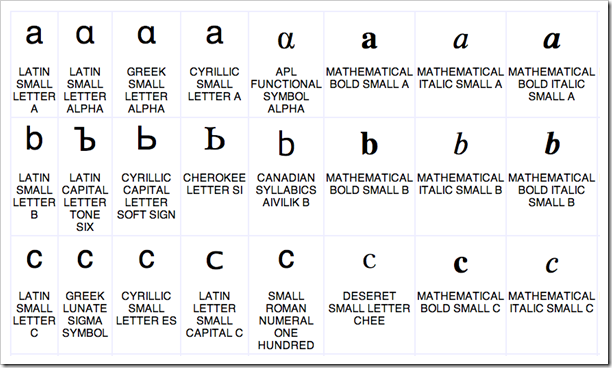Gmail’s Spam Filter Will Now Weed Out Identical Letter Exploits
Earlier last week, Gmail had announced support for multi-lingual email where even email addresses in non-english language could send and receive emails. So, now non-Latin characters are also supported in Gmail.
However, this change has inadvertently opened a new gateway for spammers, where they can use identical looking letters from non-english languages and include parts of it in english text and fool users. The reason why they need to use these letters – Gmail would generally mark such mails as spam if used in plain english language. Gmail’s spam filters do a great job of identifying spam mails based on words. So, any email that has lets say a word “bank” or any other high-risk words will be scrutinized closely.
But what spammers do is, replace certain identical letters from non-english language in normal english text to fool the spam filters. I am sure once in a while you may have come across such mails that has certain letters looking slightly skewed – more often than not, these are spam.
Here are some examples of similar looking letters that are used by spammers in their emails to fool spam filters.

However, going forward Gmail will be blocking all such similar looking letters. Gmail wants to stay one step ahead of spammers and they have identified suspicious combinations of letters that could be misleading, and Gmail will now begin rejecting email with such combinations. To achieve this, Gmail is an open standard—the Unicode Consortium’s “Highly Restricted” designation—which strikes a healthy balance between legitimate uses of these new domains and those likely to be abused.
It is a always a tug-of-war between spammers and email providers, where former keep finding ways to efficiently beat the filters and latter wants to ensure that they are secure gate-keepers. Gmail has shown till now that they are doing a good job of it, and with this new inclusion, they are getting even better!
